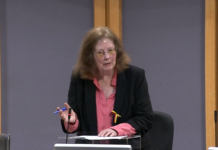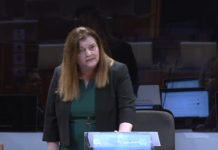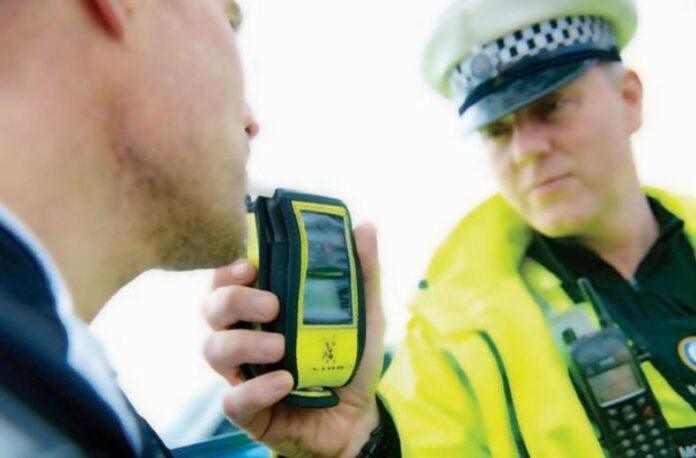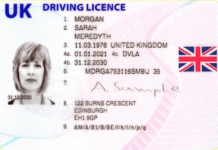New data reveals how London, Northern Ireland and West Yorkshire were some of the worst offending areas
● Over the festive period, December was the worst month overall with 3,581 drivers caught for drink-driving offences.
● This year, 79% of drivers said that they’re attending some sort of social event or gathering, which could come with a risk of further drink-driving.
● That’s as almost half (48%) of drivers said they’ve driven after drinking alcohol in the past. And a quarter of these (25%) said they’d do it again.
● If you’re driving, don’t drink. But if you need to drive the next day, Confused.com’s morning after calculator can help estimate when it may be safe to get behind the wheel.
● Motor expert Louise Thomas at Confused.com car insurance explains the effects of drink-driving and how it could affect your car insurance costs.
More than 10,000 drivers were arrested last year for drink-driving offences during the festive season(1).
And new data reveals how drivers in London, Northern Ireland and West Yorkshire were some of the worst offenders during festivities. That’s according to Confused.com, who asked UK police forces how many drink-driving arrests were made between November 2022 and January 2023.
Over the festive period, data shows that December was the worst month overall, with police across the UK making a total of 3,581 arrests. The Met Police were the busiest, with 508 arrests made during December. This was almost double the number of arrests made in Northern Ireland, but both had some of the highest drink-driving numbers. Here’s a list of the top 5 offending areas in the UK:
|
Police force area: |
November 2022 |
December 2022 |
January 2023 |
Total |
|
Met Police |
457 |
508 |
490 |
1455 |
|
Northern Ireland |
236 |
262 |
181 |
679 |
|
West Yorkshire |
199 |
244 |
200 |
643 |
|
West Midlands |
186 |
226 |
199 |
611 |
|
Thames Valley |
176 |
250 |
165 |
591 |
Over the coming weeks, millions of people across the UK celebrate both Christmas and New Years. So with this there’s lots of opportunity to drink alcohol at work parties, family gatherings, and other social events. But it’s clear that the lead up to Christmas is a prime time for offences. And further research gathered by Confused.com of 2,000 motorists reveals that the majority (79%) have already planned their social events for this year. And although not everyone is tempted, there’s the risk that some may choose to drive after drinking alcohol. Especially as 1 in 5 (22%) said they tend to drink more alcohol around Christmas.
And it’s evident from the latest research that some drivers do risk it. That’s as almost half (48%) of those surveyed admitted to drink-driving in the past. And a quarter (25%) of those said that they’d do it again. Reasons for driving after drinking alcohol included:
● Being certain they were within the legal limit (54%)
● Only having a couple of drinks (40%)
● Feeling sober and in control to drive (35%)
Others said that they drove because they had a big meal before drinking (18%) or because they didn’t have far to drive (16%). And some even risked it because it was late at night (12%) or because they didn’t think there would be any police around (7%).
In the UK, there are strict alcohol limits when it comes to driving, although these limits vary depending on where you live in the UK(3). So how many units of alcohol is acceptable to have before driving? It’s impossible to say exactly how many alcoholic drinks are within the legal limit as it can depend on the person. Things like your weight, height and metabolism determine how quickly alcohol leaves the system.
Alcohol can stay in your system a long time, even the morning after drinking. So even if you’re not risking getting behind the wheel the same night after festive celebrations, it can be just as dangerous the morning after. To work out whether you’re still above the limit, Confused.com’s morning after calculator can help. The calculator helps to estimate the alcohol levels in your system based on how many drinks were consumed the night before.
So although drivers might think they’re being sensible by not drink-driving on the same day, the aftermath can be just as dangerous. In fact, around 1 in 4 (28%) drivers admitted they’ve driven the morning after when they might have been over the limit. When asked how they judged their ability to drive, more than a third (35%) said that they based it off how they were feeling that morning. Others said they assumed the alcohol had worn off after sleeping (34%). Less than 1 in 5 (18%) said they had calculated how many drinks they had the previous night in relation to how much time had passed.
And drivers should be wary that police presence on the roads doesn’t shy away at certain times of the year. And if caught, the punishment is taken seriously due to the nature of the offence. If caught drink-driving, motorists could receive an unlimited fine, a driving ban, and imprisonment. But that’s not all. Drivers could see their car insurance costs increase or have their work-life impacted, especially if their job involves driving. And when it comes to travel, some countries such as the USA might not allow entry(2). So the consequences of driving after drinking alcohol could be life changing.
Motor expert Louise Thomas at Confused.com car insurance comments:
“The majority of drivers won’t take the chance of drink-driving, but the latest police data shows how it’s still a problem on UK roads. Especially at this time of year.
“Driving while under the influence of alcohol can put both drivers and other road users at risk, which is why the consequences are taken so seriously. If caught, drivers could face unlimited fines, a driving ban and imprisonment. If you rely on driving for work, this could affect your job security. And it’s also likely that you could see an increase to the cost of your car insurance.
“If you’ve planned to go out over the festive period and you’re drinking alcohol, don’t drive. But if you need to drive the day after drinking, remember that this could be just as risky. Our morning after calculator can help estimate your alcohol levels before you decide to get back on the road.”
Help keep news FREE for our readers
Supporting your local community newspaper/online news outlet is crucial now more than ever. If you believe in independent journalism, then consider making a valuable contribution by making a one-time or monthly donation. We operate in rural areas where providing unbiased news can be challenging. Read More About Supporting The West Wales Chronicle






















